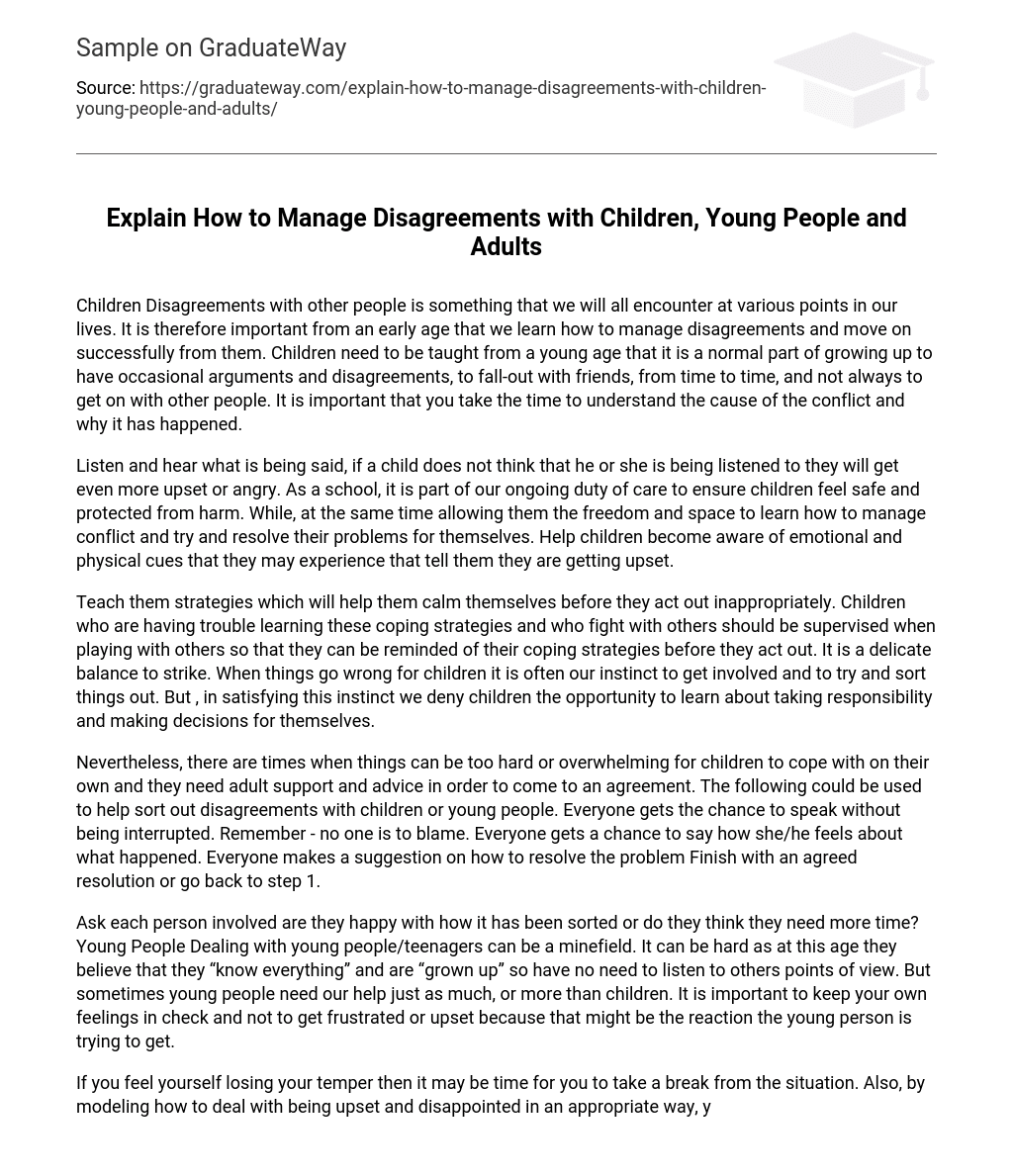Children Disagreements with other people is something that we will all encounter at various points in our lives. It is therefore important from an early age that we learn how to manage disagreements and move on successfully from them. Children need to be taught from a young age that it is a normal part of growing up to have occasional arguments and disagreements, to fall-out with friends, from time to time, and not always to get on with other people. It is important that you take the time to understand the cause of the conflict and why it has happened.
Listen and hear what is being said, if a child does not think that he or she is being listened to they will get even more upset or angry. As a school, it is part of our ongoing duty of care to ensure children feel safe and protected from harm. While, at the same time allowing them the freedom and space to learn how to manage conflict and try and resolve their problems for themselves. Help children become aware of emotional and physical cues that they may experience that tell them they are getting upset.
Teach them strategies which will help them calm themselves before they act out inappropriately. Children who are having trouble learning these coping strategies and who fight with others should be supervised when playing with others so that they can be reminded of their coping strategies before they act out. It is a delicate balance to strike. When things go wrong for children it is often our instinct to get involved and to try and sort things out. But , in satisfying this instinct we deny children the opportunity to learn about taking responsibility and making decisions for themselves.
Nevertheless, there are times when things can be too hard or overwhelming for children to cope with on their own and they need adult support and advice in order to come to an agreement. The following could be used to help sort out disagreements with children or young people. Everyone gets the chance to speak without being interrupted. Remember – no one is to blame. Everyone gets a chance to say how she/he feels about what happened. Everyone makes a suggestion on how to resolve the problem Finish with an agreed resolution or go back to step 1.
Ask each person involved are they happy with how it has been sorted or do they think they need more time? Young People Dealing with young people/teenagers can be a minefield. It can be hard as at this age they believe that they “know everything” and are “grown up” so have no need to listen to others points of view. But sometimes young people need our help just as much, or more than children. It is important to keep your own feelings in check and not to get frustrated or upset because that might be the reaction the young person is trying to get.
If you feel yourself losing your temper then it may be time for you to take a break from the situation. Also, by modeling how to deal with being upset and disappointed in an appropriate way, you are teaching the young person that everyone has those feelings but they still have to be dealt with in an acceptable way. It can also help to get the parents involved in any major issues to ensure that you are all on the same page and any strategies you put in place are being done at home too. Adults As we go through our day to day lives be it at work or in other settings there will always be times when you disagree with other adults.
The way that you cope with these disagreements is very important. You must ensure that you always remain calm and polite, no matter how stressed or angry you may feel about the disagreement, if you lose your temper this will not help to resolve the situation. Listen carefully and respect the other adult’s point of view, in a disagreement we all believe that “we are right” and it is easy to get carried away and talk over the other person, but by listening to what they have to say and taking into account their stance on the issue we will be able to move forward to resolution much quicker.
Also avoid, at all costs, making personal comments, this will only add fuel to any disagreement. Always ensure that your supervisor is aware of any difficulties and keep them up to date. Also take any issues away from the classroom and ensure that children are never aware of any disagreements. If after discussion and mediation refer to your school’s grievance procedure if a disagreement cannot be resolved.





